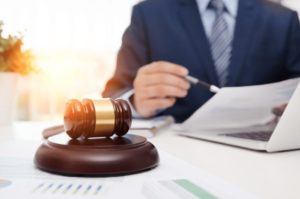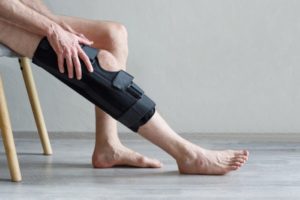
Discover essential steps to take after a personal injury. Learn the dos and don’ts to protect your rights and well-being.
In the aftermath of a personal injury, every action you take matters. The moments following an accident or injury can significantly impact your legal rights, health, and overall well-being. This article outlines crucial dos and don’ts to guide you through the immediate aftermath of a personal injury.
Dos After a Personal Injury
1. Seek Medical Attention
Immediate medical attention should be your top priority. Even seemingly minor injuries can have hidden complications. Consult a healthcare professional to assess and address your injuries.
2. Document the Incident
Thoroughly document the circumstances surrounding the injury. This includes taking photos of the accident scene, gathering witness information, and noting any statements made by others involved.
3. Notify Relevant Parties
Inform relevant parties about the incident. This may include notifying your employer if the injury occurred at work or reporting the incident to the police if it was a result of criminal activity.
4. Preserve Evidence
Preserve all evidence related to the injury. Keep medical records, receipts, accident reports, and any communication with insurance companies. This evidence can be crucial in legal proceedings.
5. Consult with an Attorney (if necessary)
If your injury is severe or involves complex legal issues, it’s advisable to consult with a personal injury attorney. They can help you navigate the legal process and protect your rights.
6. Follow Medical Advice
Adhering to medical advice is essential for a swift recovery. Attend follow-up appointments, take prescribed medications, and follow recommended treatment plans.
Don’ts After a Personal Injury
1. Don’t Admit Fault
Avoid admitting fault for the injury, even if you think you might be partially responsible. Let experts determine liability.
2. Don’t Discuss the Case on Social Media
Refrain from discussing the details of your injury or case on social media. Anything you say online can potentially be used against you.
3. Don’t Sign Anything Without Legal Advice
Do not sign any documents, waivers, or settlements without consulting with a personal injury attorney. You may inadvertently waive your rights.
4. Don’t Delay Seeking Medical Help
Delaying medical attention can worsen your condition and complicate your case. Seek medical help promptly.
5. Don’t Settle Too Quickly
Insurance companies may offer quick settlements, but they are often insufficient to cover long-term medical expenses. Be cautious and consult with a legal expert before accepting any settlement.
Why Immediate Action Matters
Taking immediate action after a personal injury is crucial for several reasons. From a legal perspective, it helps preserve evidence and establish liability. On the health front, prompt medical attention can prevent complications and facilitate a quicker recovery.
Seeking Compensation
Pursuing compensation for personal injuries involves several steps. It typically begins with notifying the responsible party and their insurance company. If negotiations fail, a lawsuit may be necessary. Your attorney will guide you through this process to ensure you receive the compensation you deserve.
Resources and Support
Recovering from a personal injury can be physically and emotionally challenging. Seek support from friends, family, and support organizations. Various groups and resources are available to assist you during your recovery journey.
Conclusion
In summary, taking immediate action after a personal injury is vital to protect your rights and well-being. Remember the dos and don’ts outlined in this article. Seek medical attention, document the incident, and preserve evidence. Avoid admitting fault or discussing the case on social media. Consult with an attorney if needed, and follow medical advice. By following these guidelines, you can navigate the aftermath of a personal injury with confidence.
Frequently Asked Questions
What should I do immediately after a personal injury?
After a personal injury, seek medical attention, document the incident, notify relevant parties, preserve evidence, consult with an attorney if necessary, and follow medical advice.
How can I protect my legal rights after an injury?
Protect your legal rights by not admitting fault, refraining from discussing the case on social media, avoiding signing anything without legal advice, and promptly seeking medical help.
Should I seek medical attention right away?
Yes, seeking immediate medical attention is crucial to assess and address injuries, even seemingly minor ones.
What are the common mistakes to avoid after a personal injury?
Common mistakes include admitting fault, discussing the case on social media, signing documents without legal advice, delaying medical help, and settling too quickly.
When should I consult with an attorney?
Consult with a personal injury attorney when your injury is severe or involves complex legal issues. They can help protect your rights and navigate the legal process.
What are the potential consequences of not taking immediate action after a personal injury?
Not taking immediate action can lead to the loss of crucial evidence, complications in your health, and difficulty in pursuing compensation. Acting promptly is essential to protect your rights and well-being.
Ensure you follow these guidelines to navigate the aftermath of a personal injury successfully. Your immediate actions can make a significant difference in your recovery and legal proceedings.







